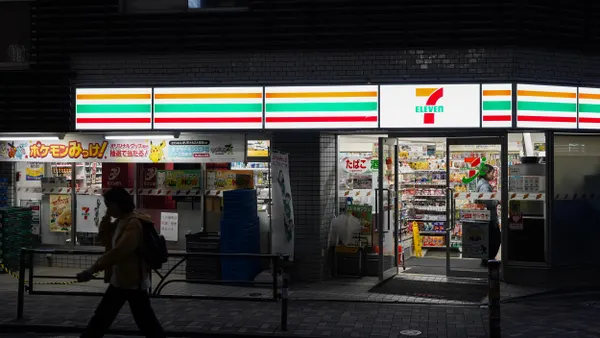UPDATE, Nov. 18, 2020: Luby's shareholders approved on Tuesday the company's plan of liquidation and dissolution, according to a press release. The company's stockholders also approved the authority to reduce the size of the board of directors, to permit action of stockholders by written consent and a ratification of Luby's existing Rights of Agreement, also known as a "poison pill." If the company receives an offer for a corporate transaction that the board views will result in superior value to stockholders versus the estimated distributions under its current plan, the company could abandoned the liquidation and dissolution plan in favor of this transaction.
Dive Brief:
- Luby's board of directors has approved and adopted a plan of liquidation and dissolution that will allow for the sale of company assets and distribution of net proceeds to company stockholders, according to a press release. The company will then be dissolved.
- Assets to be sold include the operating divisions of Luby's Cafeteria, Fuddruckers and the company's Culinary Contract Services business, as well as its real estate.
- The company seeks stockholder approval of the plan, after which the company will attempt to convert all of its assets into cash, satisfy or resolve remaining liabilities and obligations and then file a certificate of dissolution, which the company anticipates will lead to the delisting of its stock from the New York Stock Exchange. The company estimates that it could make aggregate liquidating distributions to shareholders of between $92 million and $123 million based on over 30 million in common stock outstanding as of Sept. 2.
Dive Insight:
Luby's dissolution plan comes after several quarters of same-store sales declines or minimal growth, a proxy fight with one of its largest investors and attempts at a turnaround strategy. The novel coronavirus pandemic appeared to have sealed the company’s fate.
The company's total restaurant sales fell nearly 79% during the company's third quarter ending June 3, according to an earnings release. Weekly sales did show signs of recovery reaching in excess of 80% of prior year levels at its cafeteria brand and over 70% for its Fuddruckers brand. About 40% of sales were for off-premise dining as well. The company revamped its operations to include menus concentrated on top-selling items, lower cost labor models and reevaluated its restaurant service and supplier costs. It claimed it was generating positive store level profit at the 46 cafeteria and 18 Fuddruckers locations that were open as of June 3.
But a full recovery would likely have been difficult even though the company borrowed an additional $1.4 million under its revolving credit line, $2.5 million on its delayed draw term loan and $10 million in a Paycheck Protection Program loan by June 3, according to an SEC filing. After which the company said it believed it couldn't secure any further debt financing. At the end of its Q3, it sustained a net loss of $25 million, and long-term debt was over $57 million.
Cafeteria and buffet style restaurants were among the hardest hit during mandated dining room closures. Garden Fresh Restaurants was among the first to seek liquidation, folding in May while Golden Corral revamped its restaurants without its signature buffet. Luby's said in June that it would pursue a sale of its assets and the latest news is the next step in its plan.
"Our stockholders have expressed their support for seeking alternatives to continuing to operate the company's restaurants in their current form, and we believe the plan of liquidation will allow the company to accomplish that task in the most efficient manner," Gerald Bodzy and Randolph Read, co-chairman of the Special Committee of the Board, said in a joint statement.











